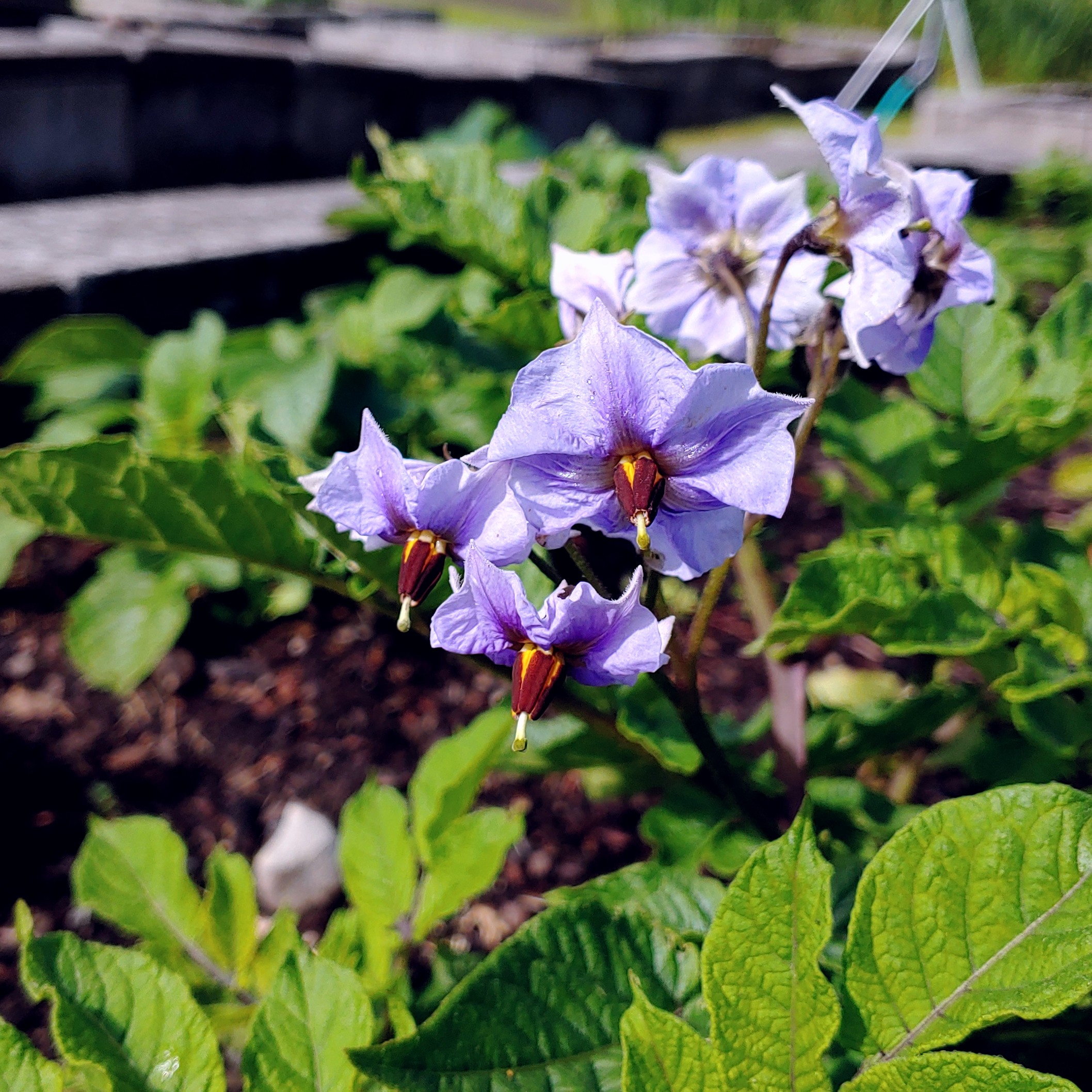No products in the cart.
All Blue is a very common and popular variety with a large number of synonyms. It is also known as Blaue Schweden, Blue Salad, British Colombia Blue, Congo (Canada/Sweden), Gfohler Blaue, MacIntosh Black, Nova Scotia Blue, River John Blue, Russian Blue, Salad Blue, Sharon’s Blue, and Shetland Beauty. The origin of this potato is unknown, but it was originally used as a marker potato. The dark blue tubers were used to show where similar varieties were separated in the field. The glycoalkaloid content of this tuber probably often exceeds the generally accepted safety limit of 20mg / 100g. Published results range from 4 to 27.2mg / 100g.
Because this potato is widely available, I generally don’t offer tubers. You can find certified tubers of this variety at the major seed potato suppliers for a better price than I could offer. I do sometimes offer true seed of this variety.
Culinary Traits
All Blue is, in my opinion, a potato with poor flavor. People who are enchanted by the blue color tend to think it tastes great, but I have tasted a lot of blue potatoes and almost all of them were better. This is not a potato to grow because it is great in the kitchen. Don’t let me talk you out of it if you like it though – tastes differ!
Agronomic Traits
All Blue is a late season variety with fairly compact plants. Yields are usually high. Tubers are uniform and often in the 5 to 6 inch range. The flesh color is usually blue throughout at cooler soil temperatures, washing out a bit in warmer soils. Flowering is usually strong and this variety self-pollinates, so it is easy to get true seed. While I am not enthusiastic about eating this variety, it does have a lot of great traits for breeding. It just needs to be crossed to varieties with better flavor. It has been used as a parent in many blue varieties. Disease resistance is poor overall in this variety, although it does seem to have some scab resistance.
True Seed (TPS)
True seed of this variety was open pollinated, although I did more emasculation and hand pollination with bulk pollen than usual to try to get more outcrossed seed in this batch, since the selfed seed is rarely an improvement on the original with this variety. It grew in a block with other blue tetraploid varieties. I expect blues, whites, and reds from the seed, in that order.
Only logged in customers who have purchased this product may leave a review.


Reviews
There are no reviews yet.